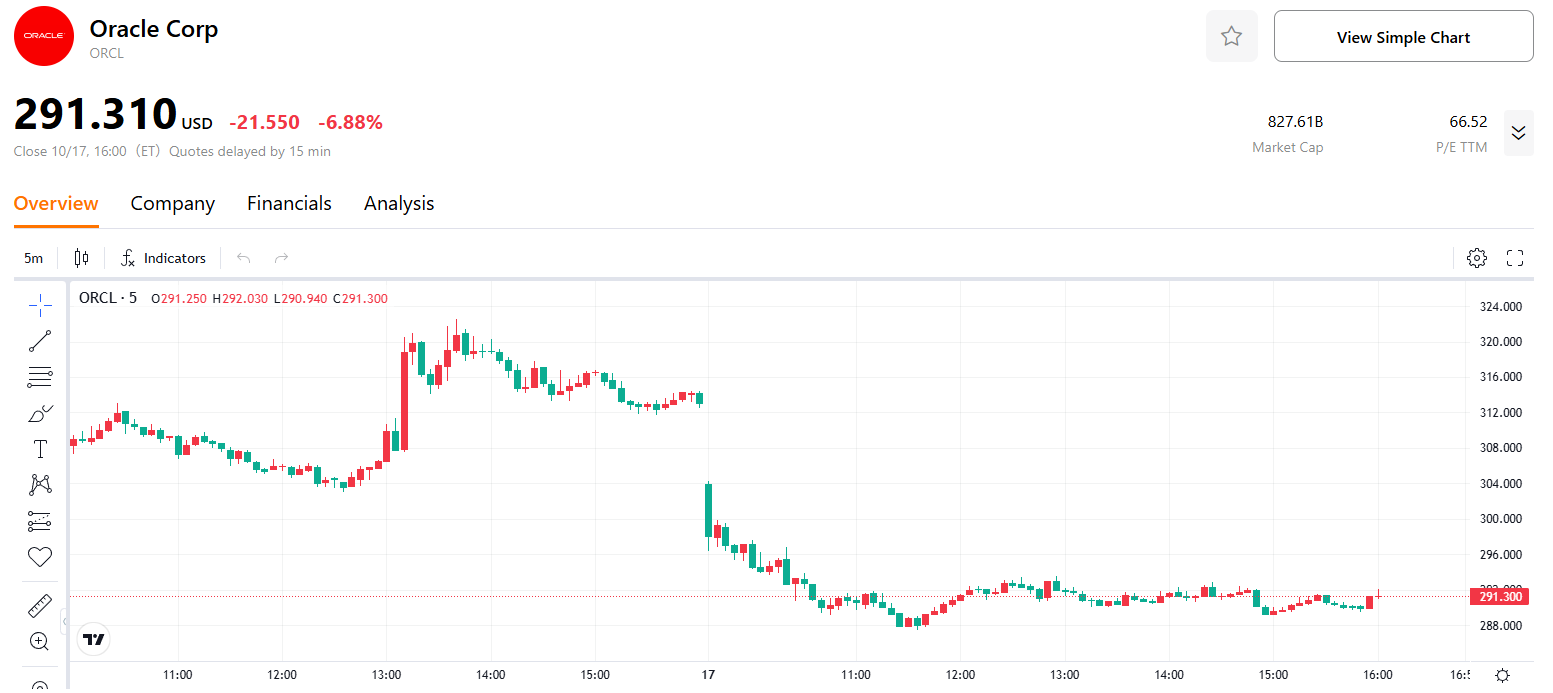Oracle Tumbles 7% Over AI Funding Fears: 'Where's the Money Coming From?' Ask Analysts

TradingKey - The artificial intelligence (AI) boom has continued to propel Oracle's stock price, with its market capitalization soaring over 160% in the past two years. However, last Friday saw Oracle's stock plummet nearly 7%, marking its largest single-day decline since January this year.

This Thursday, at Oracle's AI World conference in Las Vegas, the company significantly raised its long-term financial guidance, painting an enticing growth picture: by fiscal 2030, its cloud infrastructure revenue is projected to reach a staggering $166 billion (far exceeding the $18 billion target for fiscal 2026), adjusted earnings per share of $21, total revenue of $225 billion, and an annualized sales growth rate exceeding 31%. These figures suggest explosive growth in the coming years.
Initially, the market responded positively, pushing Oracle's stock up 3.1% on Thursday, continuing its previous strong momentum.
However, Wall Street analysts focused their firepower on Friday, sharply highlighting key unanswered questions behind Oracle's ambitious targets, particularly the source of massive funding required for this expansion.
The need for enormous upfront investment to support AI workloads has become an established fact, including purchasing expensive AI chips from companies like NVIDIA and AMD, along with supporting data center equipment.
In Oracle's fiscal year ending May of this year, capital expenditures exceeded operating cash flow for the first time — a record high since 1990 — and this may only be the beginning. According to Visible Alpha consensus forecasts, Wall Street analysts expect Oracle to continue experiencing negative free cash flow for the next three fiscal years, meaning cash consumption will exceed cash inflows from operating activities, with cumulative cash consumption potentially approaching $29 billion by the end of fiscal 2028.
Jefferies' Brent Thill pointed out that capital expenditures typically need to increase substantially in line with cloud infrastructure revenue growth, but Oracle has not provided related projections, raising concerns about how it will finance its expansion and meet the costs required for customer AI demands.
J.P. Morgan's Mark Murphy further analyzed the growth trajectory, noting that while Oracle's ambitious 2030 targets are impressive, they also imply that revenue growth from new contracts or expansions will slow toward the end of this decade. He further cautioned investors about software companies' poor historical record in executing 4-5 year long-term guidance, expressing concern that Oracle's targets may set an excessively high bar for the next five years.
Morgan Stanley debt analysts previously predicted that Oracle's bond issuance would "increase substantially"—even the $18 billion in bonds issued last month would cover only about one-quarter of cash needs through 2028.







